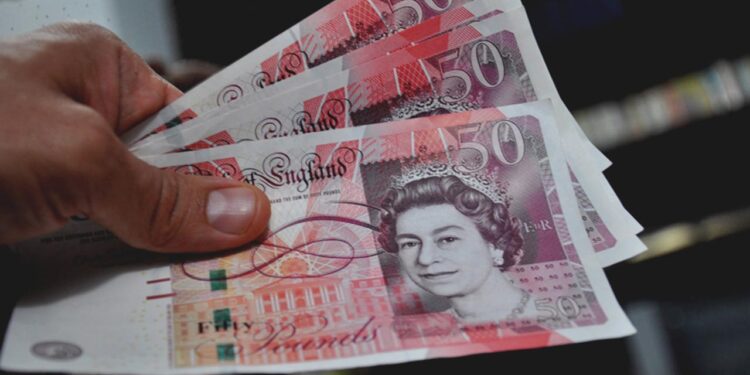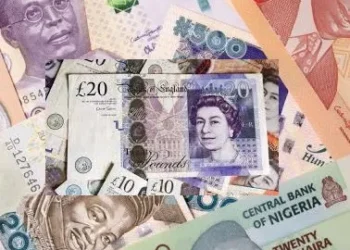The Nigerian naira slid further against the British pound, opening Thursday at ₦2,180/£1 on the parallel market. This marks a breach of the ₦2,150 barrier as the currency continues to grapple with pressures in the foreign exchange market. The depreciation comes despite the Central Bank of Nigeria’s (CBN) improved foreign reserves, which recently peaked at $40 billion, the highest under President Bola Tinubu’s administration.
Persistent Pressures on the Naira
The naira’s performance against the pound remains strained, driven by factors such as reduced oil output, speculative trading, and fiscal challenges. In addition, a decrease in Nigerian students traveling to the United Kingdom, following UK policy changes aimed at curbing migration, has affected demand dynamics. Home Office data revealed a 68% drop in student visas issued to Nigerians in the first half of 2024 compared to the same period in 2023.
The UK’s Office for National Statistics (ONS) reported that rising inflation, which climbed to 2.3% in October, has strengthened the pound. This unexpected uptick, along with robust core inflation figures, has buoyed the pound against major currencies, including the naira.
Economic Outlook and Trade Relations
Trade between Nigeria and the UK remains significant, amounting to approximately €35 billion last year, with Nigeria maintaining a €10 billion trade surplus. However, the naira’s struggles are compounded by weak export capacity, low production levels, and an over-reliance on oil revenues.
In the broader context, the pound’s recent strength is partially offset by the UK economy’s 0.1% contraction in October GDP and challenges in sustaining economic growth. Analysts suggest these mixed fundamentals may create resistance for the pound around ₦2,500/£1.
Broader Currency Market Trends
Globally, the British pound faces pressure from a strengthening US dollar, fueled by recalibrated expectations regarding Federal Reserve interest rate policies. This dynamic, coupled with geopolitical uncertainties such as the Russia-Ukraine conflict, has added volatility to the currency markets.
Outlook for the Naira
As Nigeria’s fiscal and economic challenges persist, the naira faces continued pressure in both official and parallel markets. Without significant policy interventions or improvements in economic fundamentals, analysts predict further depreciation against major currencies, including the pound sterling.










